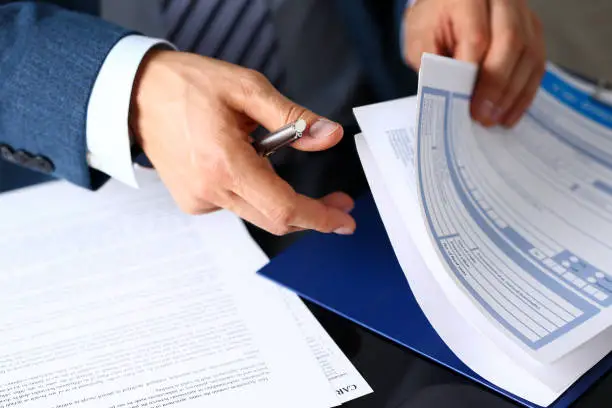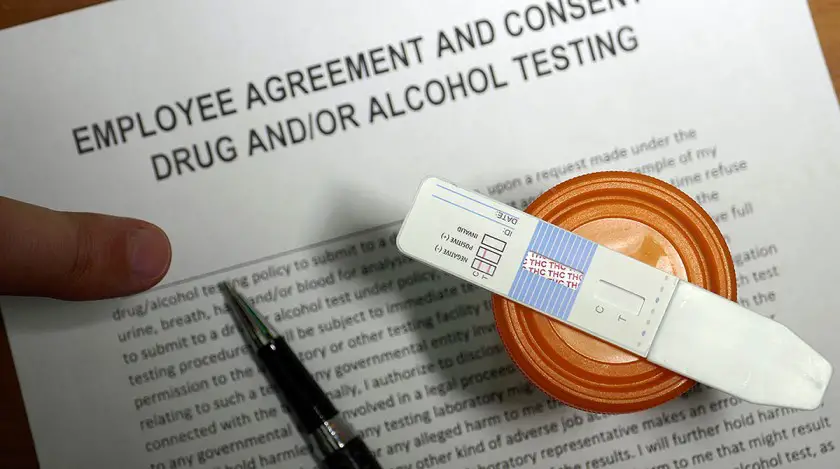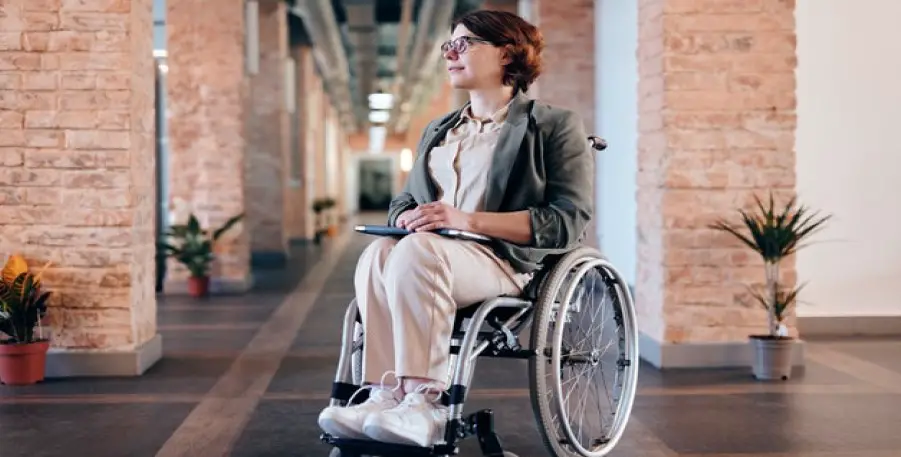Do you have a burning desire to defend and act on behalf of disabled persons?
Then, you can become a power of attorney for a disabled person. I’ll walk you through the whole process in this article.
A study shows that over 90% of disabled persons experience abuse in their lives, and 26% experience violent crimes. This study result implies that disabled people are likely to experience abuse and need assistance defending their rights and handling complex legal matters.
This assistance ranges from financial affairs to emotional trauma, abuse, assault, and health matters.
Table of Contents
- What is a Power of Attorney for a Disabled Person?
- Types of Power of Attorney for Disabled Persons
- How to Become a Power of Attorney for a Disabled Person
- What Disqualifies One from Becoming Power of Attorney?
- Documents for Power of Attorney for a Disabled Person
What is a Power of Attorney for a Disabled Person?
A power of attorney for a disabled person is a document that a disabled person executes, giving someone else the full right to act on their behalf. As earlier mentioned, the power could be in financial matters, personal, or medical affairs.
Sometimes, a power of attorney may limit you to specific areas. Some persons may decide to have a power of attorney for separate affairs. Whichever it is, a power of attorney’s primary function is to act on behalf of the grantor.
Let’s look at the different types of power of attorney for disabled persons.
Recommended: How to Successfully Report Someone Taking Advantage of a Disabled Person
Types of Power of Attorney for Disabled Persons
General power of attorney
Here a power of attorney is unrestricted to a specific area, so, can function in all capacities on behalf of the disabled person.
Medical powers for a power of attorney
Here a power of attorney handles the medical affairs of the disabled person, including authorizing hospital admissions, terminating medical treatment, signing of surgical documents, etc.
Financial powers for a power of attorney
Here a power of attorney handles the financial affairs of the disabled person, including signing checks, managing disabled person finances, buying and selling bonds, stocks, real estate, and handling insurance matters.
How to Become a Power of Attorney for a Disabled Person

Against popular belief, a power of attorney does not require a certificate or qualification in law. Anyone can become a power of attorney for a disabled person, provided there’s the consent of the grantor. So, check out the due process of becoming a power of attorney for a disabled person.
Present the option to the disabled person
First, discuss with the disabled person about the option. It’s best to present them with the benefits of appointing power of attorney for their disabilities. It’s not in your power to become a power of attorney without the consent of the person involved.
The disabled person is the one to appoint you as their power of attorney. Also, they have the right to decide if they want a general or specific power of attorney. In addition, it’s in their power to decide the duration of a power of attorney.
While some state laws do not allow power of attorney for more than a year, others allow up to 18 months. So you must discuss these important details with the disabled person to agree on a decision.
Draft power of attorney for a disabled person
Once you’ve nailed the power of attorney option with the disabled person and reached an agreement, proceed to draft the power of attorney document. The document should address the scope of power granted, the details of the grantor, and that of the agent.
Make sure to check with your local law before drafting the document, as every region has its requirements for drafting a valid power of attorney. A power of attorney must be per your local law and regulations.
Figure out your state’s requirement for creating power of attorney for a disabled person and stick to it; otherwise, you will end up with an invalid document.
Sign the document
Signing a power of attorney works the same way as drafting the document. Here’s a clue. Some regions require 2-3 witnesses to sign a power of attorney. Others may demand a notarization.
So check again with your local laws to know the requirements for signing power of attorney for disabled persons.
Distribute copies of power of attorney
Now go out and make copies of the signed power of attorney, then distribute them across institutions or persons associated with the disabled. That may include financial institutions, like banks, hospitals, insurance companies, etc.
You may also want to submit a copy to the local law enforcement agency for recording. You should also have a copy handy because of unforeseen circumstances.
Noteworthy: You should consider substitutes power of attorney for disabled persons. The substitute’s power of attorney can act in the absence of the primary power of attorney. However, the scope of power should be detailed in the document.
People who are not eligible to become power of attorney for a disabled person
Becoming power of attorney has its requirements specific to every state. However, some specific people are not eligible to become power of attorney, and this list is common to most regions.
Recommended: Penalties for Assaulting a Disabled Person
What Disqualifies One from Becoming Power of Attorney?
Check out the list of factors that makes a person unqualified to become power of attorney.

Underage
People who are not legally considered adults are disallowed from becoming power of attorney. Check with your state’s code to know the minimum age requirement for power of attorney.
Bankruptcy
Anyone in the state of bankruptcy is automatically disqualified from becoming a power of attorney. So you must have a strong financial standing to act on behalf of a disabled person.
Health issues
Persons with health challenges cannot become a power of attorney. Law enforcement agencies recommend that the person have a good health record.
Criminal record
Persons with a criminal record cannot become power of attorney for disabled persons. They must have a clean record with their local law and a good reputation in society.
Owner/Employee of care home
In the United States, the owner or the employee of the care home where a disabled person receives treatment is ineligible to become a power of attorney.
Recommended: Top 4 Services Available to Handicapped Persons
Documents for Power of Attorney for a Disabled Person
A power of attorney should be supported with important documents to carry out the functions effectively. These documents are last will, end of life plan, testament, codicil, just-in-case instructions, and vital information piled into a single document.
Health care directives and documents should accompany a medical power of attorney. Likewise, bank cheques and credit cards should accompany financial power of attorney. These documents will help the power of attorney to perform their duties effectively.




